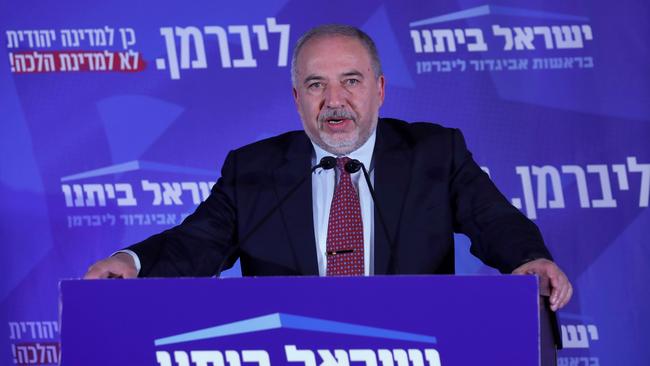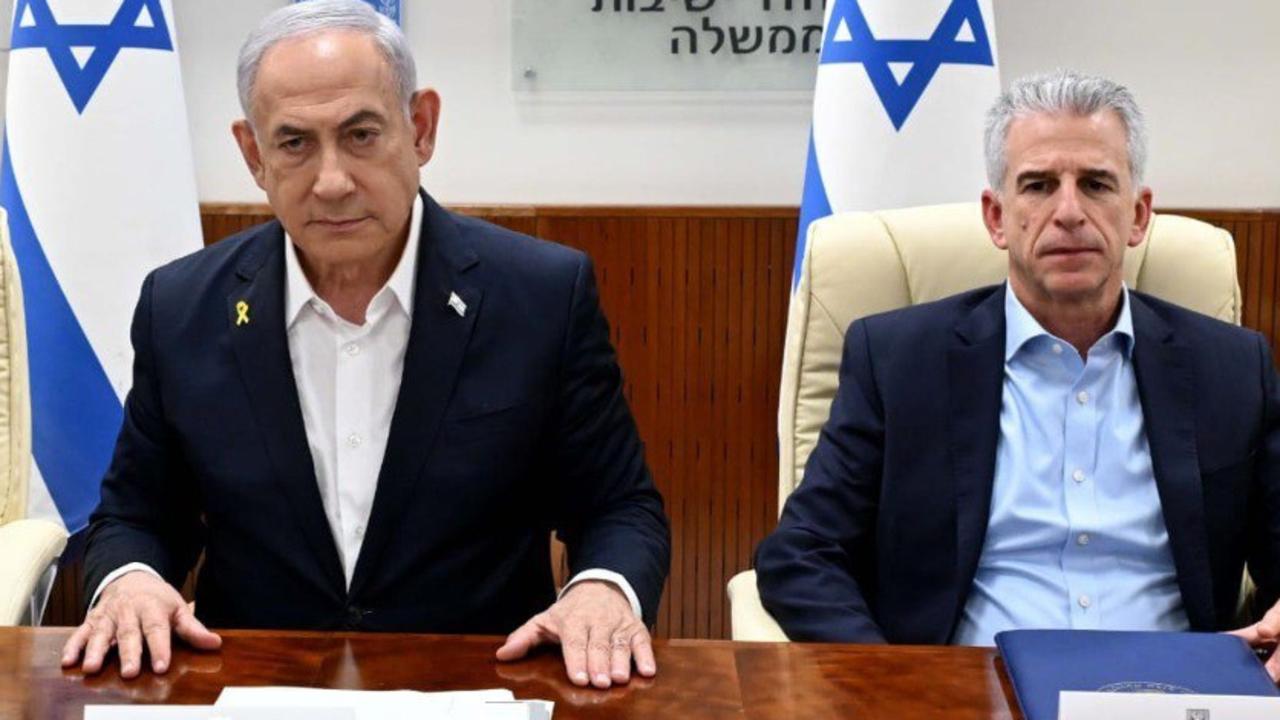Kingmaker Avigdor Lieberman rises on ultra-Orthodox crusade in Israel
The success of Avigdor Lieberman in widening his appeal from Russian speakers has turned him into a kingmaker.

In a hotel turned social housing building for elderly Israelis from the former Soviet Union, one politician remains more popular than all others — Avigdor Lieberman, the gruff hardline leader of the nationalist Yisrael Beitenu party.
At the Diplomat building housing more than 400 people in southern Israel, residents call the ex-defence minister Yvet, the Russian version of his first name.
Most of Israel’s Russian-speaking population arrived in the 1990s, and those with origins in the Soviet Union make up 12 per cent of the country’s nine million population.
Mr Lieberman has long relied on support from Israelis who, like him, have roots in the former Soviet Union but yesterday his success in widening his appeal had turned him into a kingmaker.
He did so in part with his stand against ultra-Orthodox Jewish parties, whom he accuses of seeking to force religious law onto Israel’s secular population. He has also been seeking to end exemptions for the ultra-Orthodox from performing mandatory military service like most other Jewish Israelis.
In many ways, Mr Lieberman is the reason Israel held another election only five months after the polls in April.
Prime Minister Benjamin Netanyahu’s Likud party, along with its right-wing and religious allies, won a majority of seats in April, but Mr Lieberman prevented his nemesis from forming government because he refused to agree to a coalition deal that did not include legislation making the ultra-Orthodox serve in the military. That was a deal-breaker for the ultra-Orthodox parties, who would have been an important part of the coalition. Mr Netanyahu opted for fresh polls and criticised Mr Lieberman, who headed his office during Mr Netanyahu’s first term in the 1990s.
Mr Lieberman resigned as defence minister in November over a Gaza ceasefire deal which he called a “capitulation to terror”.
At the Diplomat building, Nadejda Yermononok, 75, said Mr Lieberman “is the only one who fights the special treatment the ultra-Orthodox get” from the state — a common complaint from secular Israelis.
They “don’t work, don’t serve in the army, receive child benefits and all sorts of discounts in transportation, municipal taxes and education”, the retired nurse said.
“Other Israelis, including the Russians, work like crazy, pay their taxes and send their children to combat units.”
Ultra-Orthodox men engaged in religious studies have been exempted from military service since the creation of Israel in 1948 when there were only a few hundred to enjoy that privilege. Now there are tens of thousands who don’t serve in the army, and the ultra-Orthodox community makes up about 10 per cent of the population.
Most of those who did not vote for Mr Lieberman in April but did so on Monday were young and Israeli-born who were not against the ultra-Orthodox in principle, said Mano Geva, head of the Midgam research firm. “They’re against coercion, dictates, a halakha (Jewish law) state, and Lieberman is perceived as a determined person who keeps his word,” he said.
Zeev Khanin, a political scientist at Bar Ilan University, said Mr Lieberman had managed to transcend the idea that he represented only the Russian-speaking community. The “contemporary agenda of Lieberman is not just about the Russian street. It’s more addressed to the various groups of the Israeli society, and Russian speakers here are not different from the other groups,” he said.
Mr Netanyahu tried to counter Mr Lieberman’s popularity among Russian speakers. His posters included one of him alongside Russian President Vladimir Putin. Last month he visited Ukraine for talks on an important subject for Lieberman voters: an agreement allowing Ukrainian retirees in Israel to receive their pensions.
AFP


